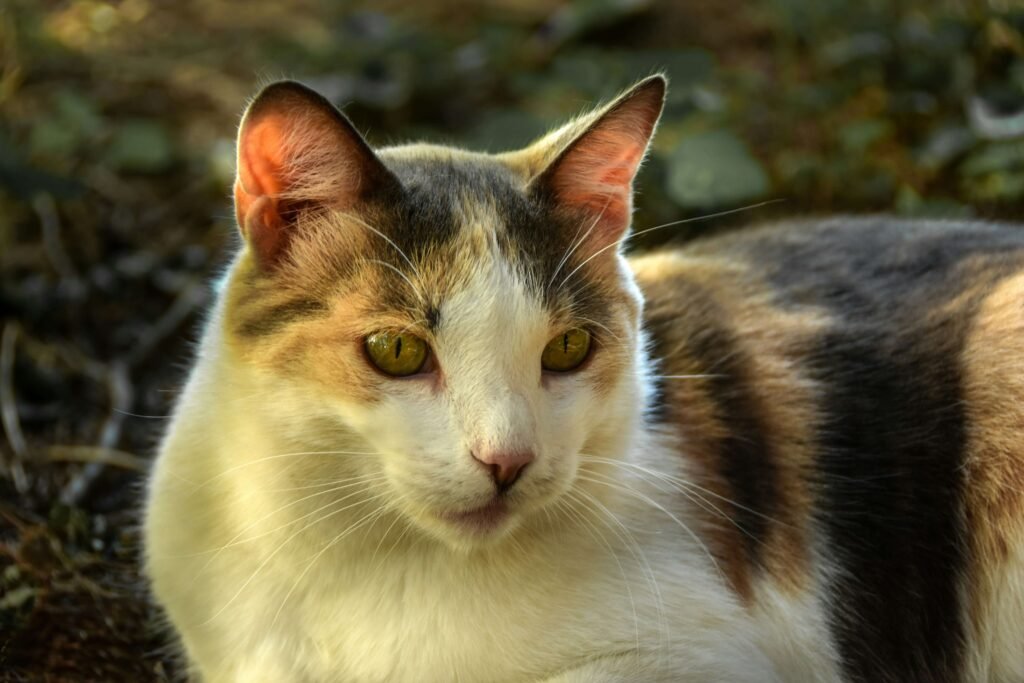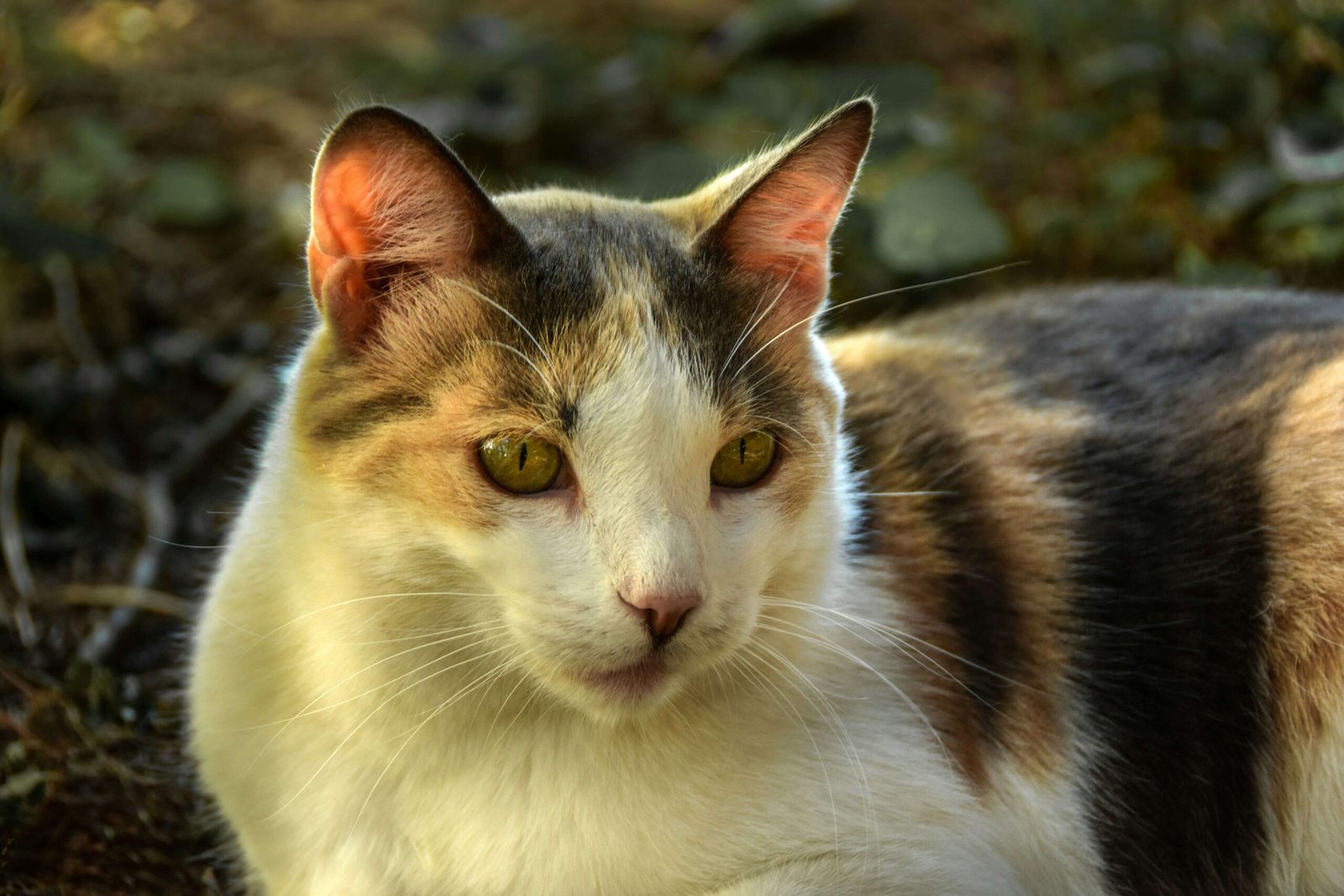Cat-Safe Herbs: Enhancing Your Feline Friend’s Well-Being Naturally
When it comes to caring for our beloved cats, many pet owners are turning to natural solutions to support their health and happiness. One such option is incorporating cat-safe herbs into their environment or diet. These herbs not only provide a safe way to enrich your cat’s life but can also offer various benefits, from calming anxiety to promoting digestive health. But what exactly are cat-safe herbs, and how can they be used effectively? In this blog post, we’ll explore the world of herbs that are safe for cats, helping you make informed choices to enhance your furry companion’s well-being.
Popular Cat-Safe Herbs You Should Know About
If you’re new to the concept of cat-safe herbs, you might be wondering which ones are worth considering. Fortunately, there are several herbs that are not only safe for cats but also loved by them. Below is a list of popular cat-safe herbs along with their unique properties and uses:
Catnip : Perhaps the most famous herb for cats, catnip contains nepetalactone, a compound that triggers euphoric behavior in many felines.
Valerian Root : Known for its calming effects, valerian root can help soothe anxious or hyperactive cats.
Lavender : This fragrant herb has mild sedative properties and can help reduce stress in cats when used in moderation.
Chamomile : Often used to ease digestive issues, chamomile can also promote relaxation and reduce inflammation.
Rosemary : While not as enticing as catnip, rosemary is safe in small amounts and can freshen your cat’s coat when used externally.
These herbs are widely recognized for their safety and potential benefits, making them excellent options for enhancing your cat’s quality of life. Always introduce them gradually and observe how your cat responds.
How to Use Cat-Safe Herbs Effectively
Knowing which herbs are safe for cats is just the first step. To truly benefit from these natural remedies, it’s important to understand how to use them properly. Here are some practical ways to incorporate cat-safe herbs into your pet’s routine:
As Toys : Stuffing toys with dried catnip or valerian can create engaging playtime experiences for your cat.
In Food : Some herbs, like chamomile, can be sprinkled lightly over your cat’s food to aid digestion or calm nerves.
For Aromatherapy : Essential oils should generally be avoided, but dried lavender sachets placed around your home can subtly calm your cat’s environment.
Topical Use : Rosemary-infused water can be lightly misted onto your cat’s fur (avoiding eyes and mouth) to freshen their coat naturally.
In Garden Spaces : Planting cat-safe herbs in your garden or indoor pots allows your cat to explore and nibble safely.
By using these methods, you can seamlessly integrate cat-safe herbs into your pet’s daily life while ensuring their safety and enjoyment. Always prioritize moderation and monitor your cat’s reactions closely.
Check this guide 👉The Importance of Cat-Safe Plants: Best 7 Expert Tips!
Check this guide 👉Is Ranunculus Cat Safe? Best 7 Expert Tips!

Herb Name | Benefits for Cats |
|---|---|
Catnip | Stimulates playful behavior; reduces stress |
Valerian Root | Calms anxiety; promotes relaxation |
Lavender | Reduces stress; creates a soothing atmosphere |
Chamomile | Eases digestive issues; reduces inflammation |
Rosemary | Freshens coat; supports overall wellness |
Signs Your Cat Loves Cat-Safe Herbs
Not all cats react the same way to herbs, but many exhibit clear signs of enjoyment when exposed to their favorites. If you’re introducing cat-safe herbs to your pet, here are some behaviors to look out for that indicate they’re enjoying the experience:
Rolling Around : Cats often roll on surfaces infused with catnip or valerian, showing obvious delight.
Increased Activity : Sudden bursts of energy or playful behavior may signal excitement triggered by an herb.
Rubbing Against Objects : Cats might rub their cheeks or bodies against items containing their favorite herb.
Purring Loudly : Purring is a universal sign of contentment, often observed during positive herb interactions.
Nuzzling or Licking : Direct contact with the herb through licking or nuzzling shows curiosity and approval.
These behaviors are strong indicators that your cat is enjoying the herb and benefiting from its effects. However, every cat is unique, so don’t worry if yours doesn’t react immediately.
Precautions When Using Cat-Safe Herbs
While cat-safe herbs are generally harmless, it’s essential to take precautions to ensure your cat’s safety. Even natural remedies require responsible handling to avoid potential risks. Here are some important tips to keep in mind:
Avoid Overuse : Too much of any herb can upset your cat’s stomach or cause adverse reactions.
Check for Allergies : Introduce one herb at a time and watch for signs of allergic reactions, such as itching or vomiting.
Steer Clear of Essential Oils : Most essential oils are toxic to cats, even if derived from safe herbs. Stick to dried or fresh forms instead.
Consult a Vet : Before adding herbs to your cat’s diet or routine, seek advice from a veterinarian, especially if your cat has underlying health conditions.
Store Safely : Keep herbs out of reach to prevent accidental ingestion of large quantities.
By following these guidelines, you can ensure that your use of cat-safe herbs remains both enjoyable and risk-free for your feline companion.
Common Causes of Cat Nose Scabs: What You Need to Know
Cat nose scabs can be alarming for pet owners, but understanding their potential causes is the first step toward addressing the issue. These scabs may result from a variety of factors, ranging from minor irritations to more serious health concerns. Here are some common causes to consider:
Allergies : Environmental or food allergies can lead to skin irritation, including around the sensitive nasal area.
Injuries : Cats often scratch or rub their noses, causing small wounds that develop into scabs.
Infections : Bacterial or fungal infections can cause inflammation and scabbing on the nose.
Parasites : Fleas, mites, or other parasites may irritate the skin and lead to scab formation.
Dry Skin : Harsh weather conditions or dehydration can dry out a cat’s skin, making it prone to cracking and scabbing.
By identifying the underlying cause of your cat’s nose scabs, you can take appropriate steps to address the issue and prevent recurrence. Always consult a vet if the problem persists or worsens.
Preventive Measures to Keep Your Cat’s Nose Healthy
Prevention is always better than cure when it comes to cat nose scabs. By taking proactive steps, you can reduce the likelihood of your cat developing these uncomfortable sores. Here are some preventive measures to consider:
Maintain Hydration : Ensure your cat has access to fresh water at all times to prevent dry skin.
Regular Grooming : Gently clean your cat’s face with a damp cloth to remove dirt and allergens.
Monitor Diet : Feed your cat a balanced diet rich in essential nutrients to support skin health.
Check for Parasites : Use vet-recommended flea and tick treatments to keep parasites at bay.
Humidify Your Home : During dry seasons, use a humidifier to maintain optimal humidity levels for your cat’s skin.
Taking these preventive steps can significantly reduce the risk of nose scabs and ensure your cat stays comfortable and healthy. Regular observation is key to catching issues early.
When to Seek Veterinary Care for Cat Nose Scabs
While some cases of cat nose scabs can be managed at home, others may require professional attention. Knowing when to seek veterinary care is crucial for your cat’s well-being. Below are signs that indicate it’s time to consult a vet:
Persistent Scabs : If scabs don’t heal within a week or two, it could signal an underlying issue.
Swelling or Redness : Significant inflammation around the nose may indicate an infection or allergic reaction.
Behavioral Changes : Lethargy, loss of appetite, or increased scratching can point to a more serious condition.
Bleeding or Oozing : Any discharge or bleeding from the scabs requires immediate attention.
Unexplained Weight Loss : This could suggest a systemic issue that needs thorough investigation.
If you notice any of these warning signs, don’t hesitate to contact your veterinarian. Early intervention can prevent complications and ensure your cat receives the care they need.
Frequently Asked Questions About Cat-Safe Herbs
Are all herbs safe for cats?
No, not all herbs are safe for cats. Some common herbs, like garlic and chives, can be toxic. Always research or consult a vet before introducing new plants.
Can I grow cat-safe herbs indoors?
Yes, growing herbs like catnip or lavender indoors is a great way to provide enrichment for your cat while keeping them safe.
What should I do if my cat doesn’t react to catnip?
Not all cats respond to catnip due to genetic factors. Try other cat-safe herbs like valerian or silver vine as alternatives.
Is it safe to mix herbs with my cat’s food?
Some herbs, like chamomile, can be mixed sparingly with food. However, avoid overdoing it and consult your vet first.
Can herbs replace medication for my cat?
While herbs can complement traditional treatments, they should never replace prescribed medications without professional guidance.
Enhance Your Cat’s Life with Cat-Safe Herbs
Incorporating cat-safe herbs into your pet’s lifestyle can be a wonderful way to support their physical and emotional well-being. From stimulating playfulness to easing anxiety, these natural remedies offer numerous benefits when used responsibly. By understanding which herbs are safe, how to use them effectively, and what precautions to take, you can create a happier, healthier environment for your feline friend. Remember, every cat is different, so pay attention to their preferences and reactions. With the right approach, cat-safe herbs can become a cherished part of your bond with your furry companion.
Do Cats Have Taste Buds? Best 7 Expert Tips! – Discover how cats experience flavors and why their taste is so unique.
Do Dogs Have Taste Buds? Best 7 Expert Tips! – Discover how dogs experience taste, their preferences, and what it means for their diet and health.
Can Cats Taste Sweet? Best 7 Expert Tips! – Discover why cats can’t taste sweetness, how it affects their diet, and tips to keep them healthy and happy.
Can Dogs Taste Sweet? Best 7 Expert Tips! – Discover how dogs perceive sweetness, which foods are safe, and tips to manage their sweet cravings responsibly.





